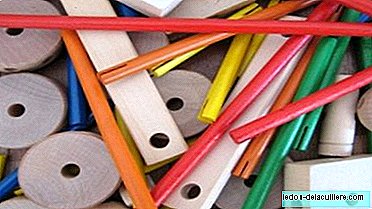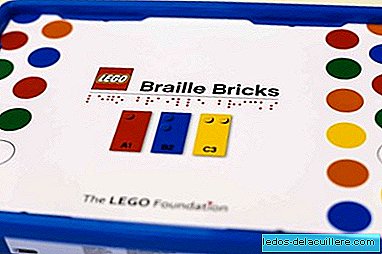
I promised you a practical example on how to apply a positive communication to a common conflict that parents have with children: toys thrown everywhere.
But first I want to finish stating clearly that in positive communication we will not resort to physical force actions, only dialogue without aggressiveness or qualifications.
The force
Not using force seems utopian. There are possibly dangerous situations in which words are not enough. A child who throws a toy against the brother's head or perches on a window is not at the moment to hear words, in that case we must intervene physically interposing between them and dangerous or aggressive behavior.
But we must hold them without violence, without shouting, without insults and without hitting them once we have stopped them. It will be enough. And of course, we must learn to be very attentive to avoid possible repetitions and talk to them, with tenderness and calm, without labeling them as bad, disobedient or foolish, about what has happened and its possible causes and consequences. To correct is not to paste.
The boy and his toys
Let's go back to our boy and his toys, which cost us so much to organize, scattered throughout the room and even invades the room. We can not walk without tripping, nor can we think about passing the broom and most desperate, with everything messy the child can not play anything and every time he gets more nervous.
Again and again the situation is repeated but it seems that the day will never come when our son will understand that he cannot take out a game without saving the previous one and without starting to pick up, not on his own initiative, but it is always necessary to put on to yell at him to do so and threaten to throw toys in the trash.
In fact, once we put everything in a bag and put it in the storage room. But although he spent a week without being able to play with his favorite things, it did not help in the long run, because he still leaves everything lying down.
Parents reprimand him, remind him to pick them up, offer him prizes of any kind and even punish him. The result is usually positive but does not last, the behavior will be repeated and each situation wears a little more patience and cordiality.
The child still does not pick up if they do not force him, or, if he does, it is for fear of punishment, shouting, or as a means to get a gift or prize. He does not convince him, he is not born from within.
He doesn't really have an intrinsic interest in keeping his room collected. The climate of trust is broken and every time you have to pick up everyone feels tension and disgust.
Solitary confinement
Parents are angry, frustrated at their inability to convey the need to pick up their child. The child does not need to pick up or understand the reasons for doing so, since all communication, even when there are explanations, has been handled from the confrontation. And in addition, the child already knows that it is messy and that he leaves everything always thrown away. They have been told so many times directly or indirectly.
To unlock this situation parents can try to use positive communication. First, they should consider the unmet need of your child that leads him not to pick up toys. Then, use empathy to connect with that need of the child and understand it, without judging it, with love and understanding towards the different and unique being that it is.
Positive communication in the face of conflict
The empathy tool It is essential to be able to live happier with others and it is especially essential to interact with the people we love and with whom we form a family. By putting ourselves in the place of another we take a huge leap in consciousness, we no longer see it as a means to achieve our needs, but as a different self equally eager to share and be served.
From this perspective I invite you to participate with suggestions on how to approach the family problem of the example, to, later, on the next topic, present the way in which the positive communication You can help us to do it.












